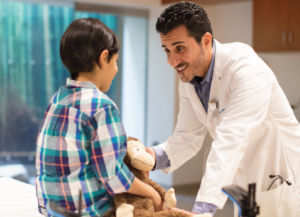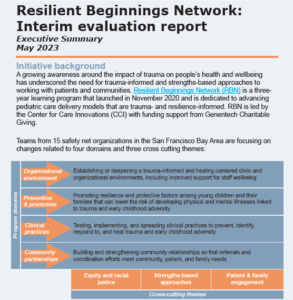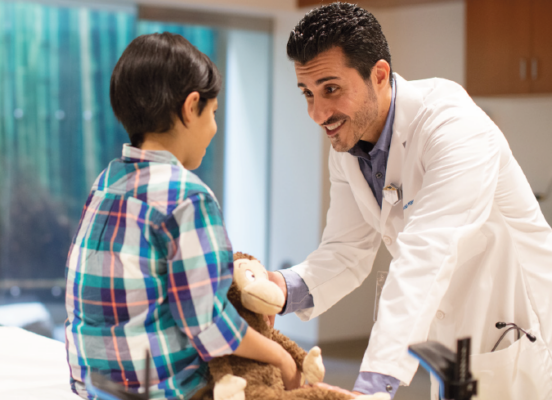 “One of the key takeaways I got from RBN is that everybody a patients sees has the potential to affect the appointment, whether that’s the front desk staff, the actual provider, the nurses. Everybody has a role to play,” a participant in the Resilient Beginnings Network (RBN) told evaluators based at Kaiser Permanente Washington Health Research Institute. “What we learned is you don’t have to be a therapist to be therapeutic.”
“One of the key takeaways I got from RBN is that everybody a patients sees has the potential to affect the appointment, whether that’s the front desk staff, the actual provider, the nurses. Everybody has a role to play,” a participant in the Resilient Beginnings Network (RBN) told evaluators based at Kaiser Permanente Washington Health Research Institute. “What we learned is you don’t have to be a therapist to be therapeutic.”

An interim report on the Resilient Beginnings Network, a three-year initiative that launched in November 2020 and was supported by the Center for Care Innovations and Genentech Charitable Giving, traces the journeys of 15 safety net organizations in the San Francisco Bay Area toward trauma-and-resilience informed care. The report explores their progress in violence prevention, parenting education, and community partnerships for social needs such as hunger and housing. In addition, it examines the programs’ work on three cross-cutting themes: the healing of children and families affected by trauma: equity and racial justice, strength-based approaches and family and community engagement.
The safety net teams reported considerable progress in their work to become a more healing organization, including focusing on resilience, trust and dignity when treating patients, figuring out better ways to support the staff and seeking patient and community input on approaches to care instead of using traditional top-down approaches. Many also noted that they need more time and support to build out their resilience programs, expand their support for staff and figure out ways to keep this work important work intact. As one participant told the evaluators, “I like the fact that [RBN is] not just telling us what to do, when; it’s providing us the support and the coaching for it. If you have never done something before, you would never know how to.”
Another added: “I think that’s where RBN has gifted us, by prioritizing that taking care of each other is more important than money, more important than checking the box that you did something.”

Some participants reported that that RBN helped them transform and deepen their work relationships by centering trust, equity and respect. “I started RBN thinking that we need to do ACEs screening because it’s the right thing to do and it will help us with the nuts and bolts (e.g., workflows, scripts),” said one participant.”I didn’t expect this overall organizational transformation. I really needed to internalize what I was hearing and feeling and slow down, take a beat and realize there’s a lot more to it. It’s a journey.”
The RBN year two evaluation was prepared by the Center for Community Health and Evaluation (CCHE) at the Kaiser Permanente Washington Health Research Institute.
Click here to find the executive summary: RBN_Year 2 Evaluation Report_Executive Summary
Find this useful or interesting? We’re constantly sharing stuff like this. Sign up to receive our newsletter to stay in the loop.

